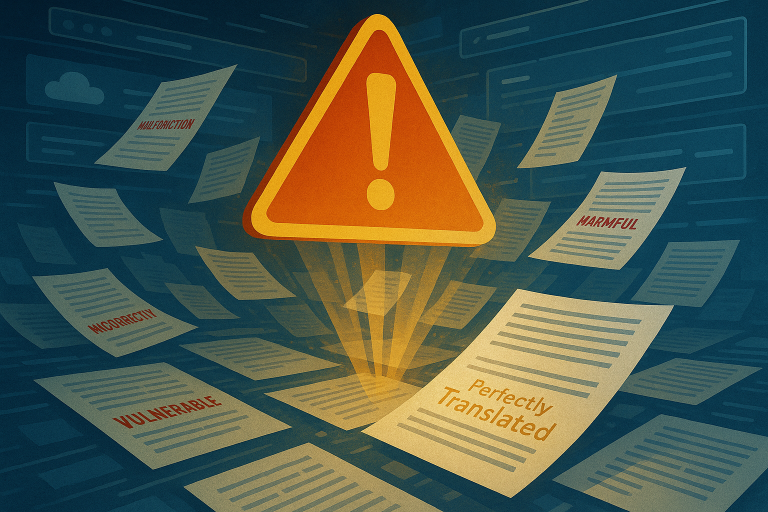Embarking on a journey to study abroad is a dream cherished by many. It’s a gateway to academic excellence, cultural immersion, and personal growth. However, amidst the excitement, one crucial aspect often overlooked is the importance of notarized translation for study abroad documents. In this comprehensive guide, we’ll delve into the significance of notarized translation, its challenges, and why it’s indispensable for academic institutions and visa applications.
Introduction
Definition and Significance of Notarized Translation
Before delving into the depths of study abroad adventures, let’s understand what notarized translation entails. Notarized translation refers to the process of translating official documents, such as academic transcripts, diplomas, and legal papers, into the language required by the destination country. These translations are then certified by a notary public to validate their accuracy and authenticity. The significance of notarized translation lies in its role as a bridge between different languages and legal systems, ensuring that vital information is accurately conveyed and legally recognized across borders.
Importance of Study Abroad
Benefits of Studying Abroad
Studying abroad offers a plethora of benefits beyond academic achievement. It provides students with opportunities to broaden their horizons, gain intercultural competence, and develop valuable life skills such as independence and adaptability. Additionally, exposure to diverse perspectives fosters intellectual growth and fosters a deeper understanding of global issues.
Challenges in Studying Abroad
Language Barriers and Documentation
While the benefits of studying abroad are undeniable, language barriers and documentation requirements can pose significant challenges. Non-English speaking countries often require official documents to be translated into the local language for academic and legal purposes. Failure to meet these requirements can lead to delays in visa processing or even rejection of applications.
Understanding Notarized Translation
Definition and Process
Notarized translation involves several steps to ensure accuracy and legal validity. First, the document is translated by a professional translator proficient in both the source and target languages. Next, the translated document is reviewed for accuracy and completeness. Finally, the translator swears an oath before a notary public, certifying that the translation is accurate to the best of their knowledge and belief.
Legal Validity of Notarized Translations
Ensuring Authenticity and Acceptance
Notarized translations carry legal validity and are recognized as official documents by authorities and institutions worldwide. The certification by a notary public serves as a guarantee of accuracy and authenticity, instilling confidence in the integrity of the translated documents.
Importance for Academic Institutions
Requirements for Universities and Colleges
Many academic institutions, especially those in non-English speaking countries, require notarized translations of academic transcripts, diplomas, and other supporting documents for admission purposes. These translations enable institutions to evaluate the academic credentials of international students accurately.
Role in Visa Application Process
Supporting Documents and Embassy Requirements
Visa applications for study abroad programs often necessitate the submission of various supporting documents, including notarized translations of academic records, financial statements, and medical reports. Fulfilling these requirements is essential for obtaining a student visa and ensuring a smooth transition to the host country.
Notarized Translation Services
Professional Agencies and DIY Methods
Several options are available for obtaining notarized translations, ranging from professional translation agencies to DIY methods. Professional agencies offer expertise, accuracy, and convenience, albeit at a higher cost. On the other hand, DIY methods may be more affordable but require meticulous attention to detail to ensure accuracy and legal validity.
Tips for Notarized Translation
Choosing the Right Service and Cost Considerations
When selecting a notarized translation service, it’s essential to consider factors such as reputation, expertise, turnaround time, and cost. Opting for a reputable agency with experience in academic translations can alleviate concerns about accuracy and reliability. However, it’s also crucial to weigh the costs involved and explore alternative options that align with budget constraints.
Case Studies and Success Stories
Real-Life Examples of Successful Study Abroad Journeys
To illustrate the significance of notarized translation in study abroad endeavors, let’s explore some real-life case studies and success stories. These anecdotes showcase the transformative impact of studying abroad and highlight the pivotal role of accurate document translation in facilitating seamless transitions and academic success.
Amanda’s Odyssey in Florence:
Amanda’s semester in Florence wasn’t just about Renaissance art and Tuscan cuisine; it was a journey of self-discovery and personal growth.
Carlos’s Cultural Awakening in Beijing:
Carlos’s immersion in Beijing’s vibrant culture sparked a newfound passion for Mandarin language and Chinese history, shaping his academic and personal pursuits thereafter.
Hannah’s Academic Triumph in Oxford:
Hannah’s scholarly pursuits in the hallowed halls of Oxford University propelled her towards academic excellence and a newfound appreciation for British culture and history.
Max’s Entrepreneurial Endeavors in Singapore:
Max’s semester in Singapore wasn’t just about textbooks and lectures; it was a crash course in entrepreneurship and innovation, igniting his passion for global business ventures.
Sofia’s Humanitarian Mission in Ghana:
Sofia’s volunteer work in rural Ghana transcended cultural boundaries, fostering empathy, and a lifelong commitment to global service and social justice.
Practical Tips for Prospective Students:
- Start planning early to maximize scholarship opportunities and secure finances.
- Research potential destinations thoroughly to ensure compatibility with academic and personal goals.
- Embrace discomfort and cultural differences as opportunities for growth and learning.
- Stay connected with loved ones back home while fostering new relationships abroad.
- Document your experiences through journaling, photography, or blogging to preserve memories for years to come.
Conclusion
In conclusion, notarized translation plays a vital role in the study abroad journey, ensuring that academic documents are accurately translated and legally recognized across borders. By overcoming language barriers and fulfilling documentation requirements, notarized translation enables students to pursue their academic aspirations with confidence and embark on transformative experiences that broaden their horizons and shape their futures.
Frequently asked questions
Notarized translation involves translating official documents into the required language and certifying their accuracy before a notary public.
Notarized translation is crucial for fulfilling documentation requirements and ensuring that academic credentials are accurately evaluated by institutions abroad.
Notarized translations can be obtained through professional translation agencies or by following DIY methods with meticulous attention to detail.
Yes, notarized translations are legally valid and recognized as official documents by authorities and institutions worldwide.
Academic transcripts, diplomas, financial statements, and medical reports are some examples of documents that may require notarized translation for study abroad purposes.
You can verify the authenticity of a notarized translation by checking for the certification stamp and signature of the notary public.













